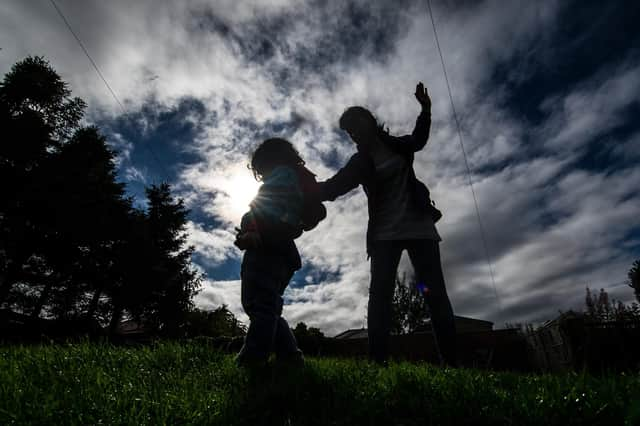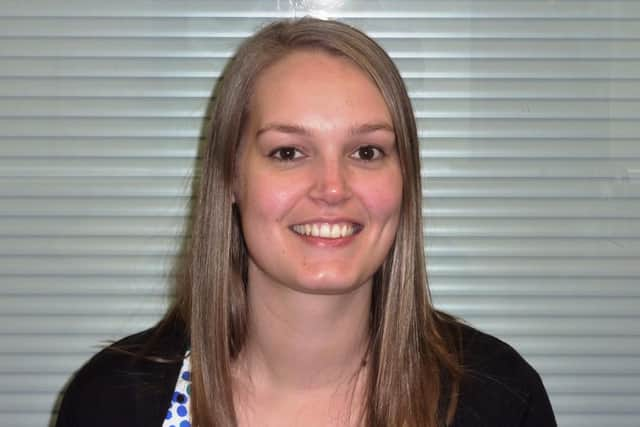Smacking ban rids Scotland of a nonsensical law that allowed adults to assault their children – Joanna Barrett


We called for an archaic defence, which allowed adults charged with assaulting a child to claim ‘reasonable chastisement' or 'justifiable assault', to be removed from Scots law.
Children and families across Scotland and organisations from across civic society, including the Church of Scotland and Scottish Youth Parliament, joined together in a movement for change, to remedy what was a fundamental issue of children’s human rights.
Advertisement
Hide AdAdvertisement
Hide AdSo, when the Children (Equal Protection from Assault) (Scotland) Bill was introduced by Green MSP John Finnie and then voted through overwhelmingly by the Scottish Parliament last year, we were both delighted and proud to see Scotland become the first UK country to commit to protecting children from all forms of physical violence.
An emotive subject
This Saturday, when the new law comes into force, will mark a momentous day in our journey to making Scotland a country where children’s rights are recognised, respected and fulfilled.
The campaign has been a long and, at times, difficult one. Physical punishment is an emotive subject: it speaks to how we were parented; how we parent. But physical punishment isn’t an effective way to discipline children and, worse, carries with it a risk of harm.


In 2015, together with the Children and Young People's Commissioner Scotland, we commissioned a review of the international evidence on this issue.
The report, produced by researchers at the Department of Epidemiology and Public Health at University College London, found that physical punishment did not work, damaged family relationships and there was growing evidence it increased aggression, anti-social behaviour and depression and anxiety in children, which may continue into their adult lives.
There is good evidence that in many countries, including Scotland and the rest of the UK, the prevalence of physical punishment is declining and public attitudes have shifted.
It is becoming less acceptable, and the vast majority of parents express highly ambivalent and negative feelings about its use. And there is evidence that legal change accompanied by public education campaigns accelerates this change in attitude.
Escalating physical punishment
Furthermore, children say it doesn’t work and before the last Holyrood election a Scottish Youth Parliament survey showed that Scotland’s young people – the parents of tomorrow – were overwhelmingly in favour of bringing up their children without physical punishment. More than 80 per cent of over 72,000 young people, aged 12 to 25, agreed that “all physical assault against children should be illegal”.
Advertisement
Hide AdAdvertisement
Hide AdHowever, for too many children, physical punishment is still part of their upbringing. And there is evidence for the risk of escalation from milder to harsher forms of physical punishment over time.
It is for these reasons that the Scottish Parliament passed the legislation and stated in clear terms that physical punishment should no longer be part of childhood in Scotland. And this message is even more important now.
While the Equal Protection legislation was passed well before the onset of the pandemic, we know that the conditions created by Covid-19 have underlined the importance for this cultural change. The pandemic has led to more stresses in many families, and some children and young people have told the NSPCC’s Childline counsellors that they have experienced more frequent physical punishment since lockdown began.
There were some children who were confused about whether what was happening to them was okay.
Fostering warmth and support
We know that in the past the defence of “justifiable assault” has created an uncertainty in law that has enabled terrible physical abuse of children to take place.
Bringing up children, including responding to their behaviour, can be difficult without the additional strains of a pandemic. But all the evidence shows that using physical punishment only makes things worse.
Young families are finding that positive parenting approaches which foster warmth and are supportive are better at helping children understand the difference between right and wrong while also making life easier for them and their children.
There is now a wealth of advice available on positive parenting techniques and setting clear and consistent boundaries in a caring and responsible way.
Advertisement
Hide AdAdvertisement
Hide AdAs three charities that have worked in child protection for many years, we know that the best way to help children is to provide support for them and their families. And support is out there to help parents manage stressful situations.
Outdated loophole
Our charities, and other organisations, provide a range of resources and services to support families, including Barnardo’s Scotland’s See Hear Respond service, Children 1st Parentline, and the NSPCC helpline, where adults can call for advice and support.
Next week, when the new law comes into force, we will be joining more than 50 other countries around the world, including Germany, New Zealand and the Republic of Ireland, to bring in such measures.
This legal reform is something for children, families and the whole of Scotland to embrace and celebrate as a hugely positive development which can improve family relationships and wider society.
In September, when the Scottish Government announced its intention to incorporate the United Nations Convention on the Rights of the Child (UNCRC) into Scots law, it made clear its vision was to transform Scotland into a country that values, respects and cherishes every child.
And giving children equal protection to adults from physical assault and ridding our laws of nonsensical and outdated loopholes is a fundamental place to start.
Joanna Barrett, NSPCC Scotland policy and public affairs manager, on behalf of the Coalition for Equal Protection – Barnardo’s Scotland, Children 1st and NSPCC Scotland.